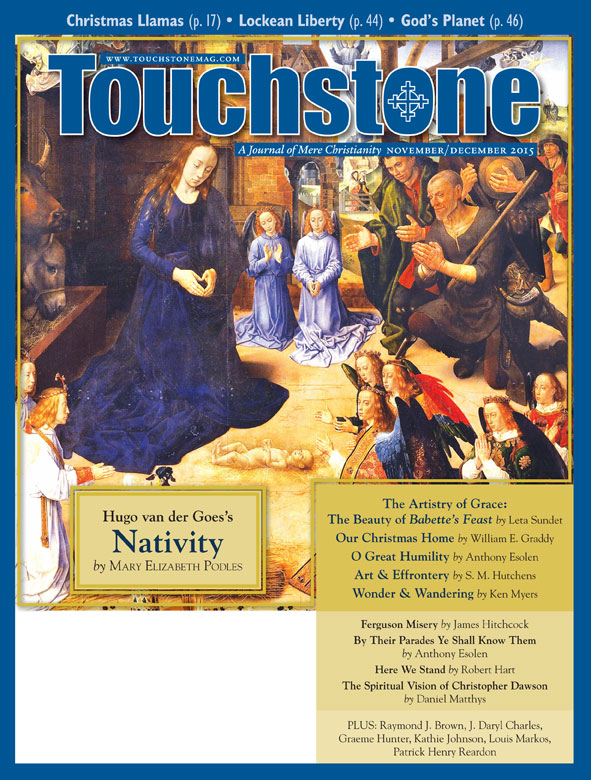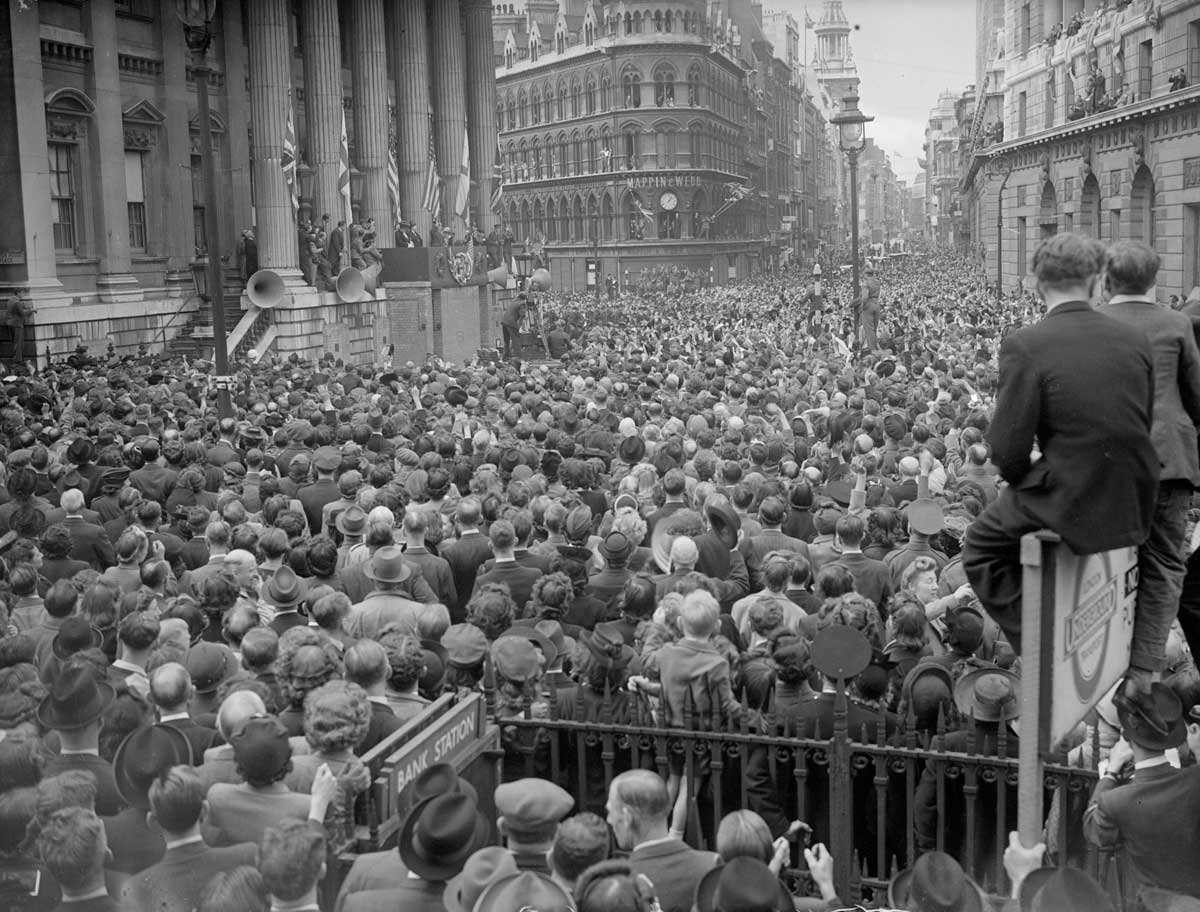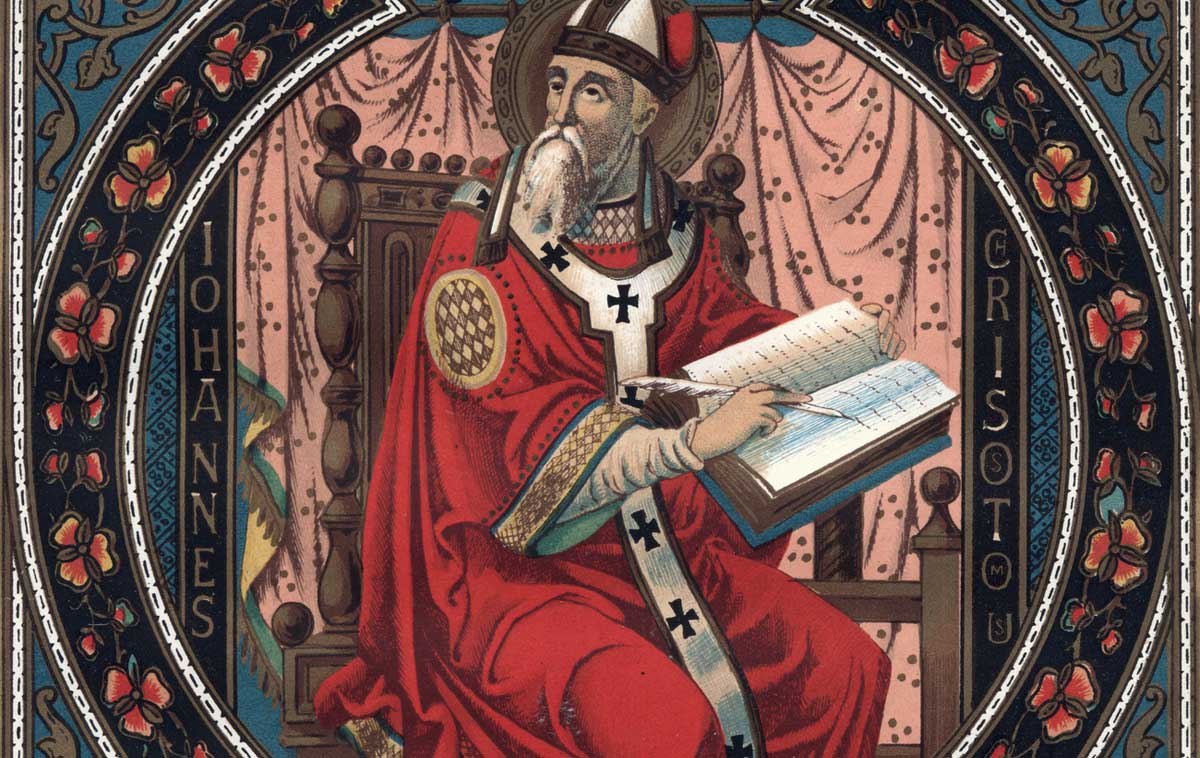Editorial
The Right Side of History?
Few Are Willing to Recognize It
What do we learn from history? Most historians probably get asked that question, and most are probably at a loss to answer it. The questioner often has a pre-conceived idea that he merely wants confirmed or else believes that there is an answer that for some reason historians are keeping secret.
I like to say that in history everything that is physically possible (and some things that are not) has happened at one time or another. Thus, there cannot be a definitive answer to the question. There are many answers, often contradictory of one another.
"History is a nightmare from which I am trying to wake up," said James Joyce, and whatever he may have meant by that, I think it expresses a terrible truth. Perhaps above everything else, history shows that human beings are, in the words of the popular Catholic prayer that Joyce himself must have sometimes uttered, "poor banished children of Eve, mourning and weeping in this valley of tears."

In a rural graveyard Thomas Gray chronicled "the short and simple annals of the poor." But for all its melancholy, his survey actually cast a cosmetic light on the reality, which was massive starvation, uncontrollable disease, catastrophic natural disasters, brutal armies repeatedly grinding their victims into dust or reducing them to unimaginably terrible slavery, ruthless egomaniacal rulers savaging their own people. When those things have been blessedly absent, most people still have had to exhaust themselves merely in order to survive yet another day.
This is not by any means the whole of history. But it is the base on which all other history rests. The relatively recent field called "social history" has allowed historians to study that reality to a degree that they rarely did in the past.
But people prefer less depressing stories, and rightly so. All of history is not a nightmare. Human achievement—political, economic, intellectual, artistic, religious—should be celebrated. But it must be recognized as, in a sense, like whitecaps on the waves of the deep, dark sea.
The Only Hope
After the Second Vatican Council, self-consciously enlightened Catholics snickered at phrases like "mourning and weeping in this valley of tears," which they dismissed as expressing a long-outdated and psychologically unhealthy kind of piety. To be a Christian was to be joyful.
It was, in a way, an odd reaction, since these same enlightened believers were quite stern in their demand that Christians concern themselves with injustice. The avant-garde understood that throughout the world most people were indeed still living in a valley of tears, but the "renewal" of the Church was conceived and directed by people of the prosperous West, for whom optimism was a moral imperative.
Their response to the vastness of human suffering was a new commitment to "social justice," which would express itself in a variety of ways, all of which had in common the dream of creating a world where the countless sufferings of past millennia would at last be eliminated.
Obviously there has been great success in elevating the standard of living of many people, but it is doubtful whether that can continue unabated. And because they do not truly acknowledge human evil, optimistic Christians cannot account for many of history's dirty tricks, such as the Holocaust's being perpetrated in a society that had gone far in eliminating physical suffering. Above all, such Christians are loath to recognize how often the very dream of utopia creates its own nightmare world.
And if a material utopia were finally to be achieved, what could be said about the countless millions—the vast majority of all who have ever been on earth—who did not live to see it? Their lives would have to be counted as meaningless.
Western prosperity has fostered a complacent agnosticism—life in this world is good; why speculate about eternity? But for most of the human race—certainly in the past, but even today—the knowledge that they are poor banished children of Eve is their only hope. Someday they will be welcomed back. •
James Hitchcock is Professor emeritus of History at St. Louis University in St. Louis. He and his late wife Helen have four daughters. His most recent book is the two-volume work, The Supreme Court and Religion in American Life (Princeton University Press, 2004). He is a senior editor of Touchstone.
subscription options
Order
Print/Online Subscription

Get six issues (one year) of Touchstone PLUS full online access including pdf downloads for only $39.95. That's only $3.34 per month!
Order
Online Only
Subscription

Get a one-year full-access subscription to the Touchstone online archives for only $19.95. That's only $1.66 per month!
bulk subscriptions
Order Touchstone subscriptions in bulk and save $10 per sub! Each subscription includes 6 issues of Touchstone plus full online access to touchstonemag.com—including archives, videos, and pdf downloads of recent issues for only $29.95 each! Great for churches or study groups.
Transactions will be processed on a secure server.
more from the online archives
calling all readers
Please Donate
"There are magazines worth reading but few worth saving . . . Touchstone is just such a magazine."
—Alice von Hildebrand
"Here we do not concede one square millimeter of territory to falsehood, folly, contemporary sentimentality, or fashion. We speak the truth, and let God be our judge. . . . Touchstone is the one committedly Christian conservative journal."
—Anthony Esolen, Touchstone senior editor










